Baku. 29 December. REPORT.AZ/ Passing year was full of events in the world, as well as in the region of the South Caucasus and Azerbaijan. Report has prepared a compilation of the most important events in the region in 2015.
One of the most significant events of the year in Azerbaijan was hosting Baku 2015 the First European games.
253 sets of medals were played on the Games, held in Baku from 12 to 28 June and 5730 athletes from fifty European countries competed in thirty types of sports, eleven of which were played out licenses to the Summer Olympic Games in 2016.
1248 media members were accredited on the first European games and they were broadcast in more than 50 countries.
About 20,000 volunteers, whose major part was young people, were involved in the European games.
Russian national team winning 164 medals, including 79 gold, 40 silver and 45 bronze showed best results at the Games. They were followed by Azerbaijani team, which won 56 medals, 21 of them were gold.
But along with sport successes there were some sad events also this year. On May 19 fire started in one sixteen-store building in Binagadi district killed 15 people, five of them - children. Other 63 people received various degrees of burns and injuries, poisoned by toxic smoke.
All residents of the burned building were evacuated. According to Deputy Minister of Emergency Situations Etibar Mirzayev, 12 helicopters were involved to extinguish the fire.
On May 20 early in the morning Azerbaijani President Ilham Aliyev visited the fire scene. On the very same day on the first meeting of the State Commission in connection with a fire Aliyev said that the perpetrators would be punished by the state.
Another tragedy have occurred relatively recently. On December 4 in the Caspian Sea on the Guneshli platform №10 owned by SOCAR, a heavy storm caused a fire. Strong winds blew off the support tube, resulting in damaged a gas pipeline working under pressure of 110 atmospheres and fire started. There were 63 oilmen on the platform. To escape from possible explosion 60 platform workers were placed in two lifeboats, which had been lowered to the level of 10 meters from the water's surface.
However, due to strong wind blows and waves, one of the lifeboats carrying oilmen fell from a cable hook and fell into the sea.
On 6 December Azerbaijani President Ilham Aliyev announced a day of national mourning.
The current global crisis and the decline in oil prices reflected in the national currencies of the region of South Caucasus, including Azerbaijani manat.
The Central Bank of Azerbaijan devalued the national currency on February 21. In particular, manat against the US dollar fell by 33.5% - to 1.05 manat / 1 US dollar against 0.7862 AZN / USD 1 on 20 February. On December 21, the Central Bank of Azerbaijan Republic held the second devaluation of manat, the national currency against the dollar has fallen by 47.6% - to 1.55 AZN/1 USD against AZN 1.05/1 USD on December 20.
The Nagorno-Karabakh issue in 2015, as in previous years, has remained a priority in foreign policy. During the year, the parties have not been able to succeed. Moreover, Baku has repeatedly stated about inactivity and injustice approach of the OSCE Minsk Group.
"For the first time this year during the inspection the OSCE Minsk Group mission was fired on the contact line. The fired party is not reported but the incident occurred," said political scientist Ilgar Velizade.
According to him, the incident that occurred a few months ago, is indicative of facts showing the tense situation on the frontline.
"This tension is stimulated by almost no progress in the negotiation process, which should make the co-chairs to pay attention to the situation in the conflict zone," he added.
The expert noted that the approach diameter of Azerbaijani and Armenian sides has been preserved. "OSCE Minsk Group had to put forward proposals which were to bring parties to the conflict together, but these proposals have not been announced. Now there are some cautious grounds for optimism - a package of proposals from the Russian side, as mentioned on the end of November - early December, in particular, at the Council of Foreign Ministers of the OSCE ", said the analyst.
"Foreign Ministers themselves have rarely met this year, which is also noteworthy that indicates the complexity of the negotiation process at this stage", - the analyst believes.
It is worth special mention that neighboring Armenia has faced the political turmoil.
On June 9, 2015 the Prime Minister of Armenia, Hovik Abrahamyan said that Armenia's electricity would be more expensive to 6.93 (16%). Meeting of the Commission on Regulation of Public Services (CRPS) on the increase in electricity tariffs was scheduled for June 17. The same day the Armenian students held protest and called on the Commission to stop the meeting and freeze electricity tariffs. According to police, on this day six protesters were detained.
By June 19 protests spread in Gyumri and Vanadzor. Starting from June 20, the campaign has become a sit-in protest. On the morning of June 23, police dispersed protesters in downtown Yerevan, using water cannons against them. In the evening on June 23 protest action resumed. About 10 000 people gathered on Freedom Square in Yerevan.
On 27 June, the President of Armenia announced the decision to postpone the increase in electricity tariffs.
Another important event in the life of Armenians is the referendum to amend the Constitution in favor of parliamentary government, which took place on December 6.
On December 13, CEC Chairman Tigran Mukuchyan said that 825 521 people or 63.37%, voted for the constitutional reform, 421 568, or 32.36% against. Thus, the referendum declared valid, as he spoke for more than 50% of the vote.
"2015, most of experts expected, turned out to be more complicated in Armenia than the previous years. In fact, we see no change in the negative parameters, which are observed in the economy, social and political life, as well as the situation with regard to Karabakh conflict ", the researcher at the Institute of Human Rights of the National Academy of Sciences of Azerbaijan (NASA), Rizvan Huseynov stated.
According to him, the domestic policy of Armenia causes growing discontent not only among people, but also among the elite power groups that are divided among the spheres of influence in business and politics in Armenia.
"The reason is that the support of foreign diasporas gradually weakens, for overseas diaspora do not see impact and benefits of the financial influence they have in Armenia", - the expert said.
He called a referendum on transition to parliamentary government a "strange ugly phenomenon."
"The result was such a funny situation: people sought to have some kind of democratic reforms, and under the guise of reform Sargsyan tried to hold on to power for a few more years. It turned out exactly the opposite," said R.Huseynov.
Speaking about the impact of the conflict on the internal situation in Armenia, the political scientist said that in the past year, Azerbaijan had consistently put pressure on Armenia in political terms. "Azerbaijan shows that it will not give any descent to some provocation or encroachments on the front line and will response to any attempts of the Armenian side to provoke a shootout on the front lines, or to make any attacks," he said, adding that in 2015 ruling elite and society realized that there is a great threat to be alone with Azerbaijan.
"I think 2016 will be a year of serious rethinking in society, especially among the intelligentsia of which is Armenia. It will be a very tough year in the settlement of the Nagorno-Karabakh conflict, and, in fact, it will show the effect of the conflict on the political situation in Armenia, which will increase instability", the expert said.
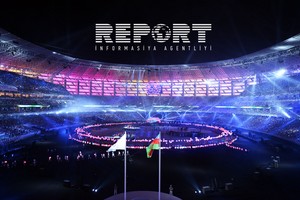
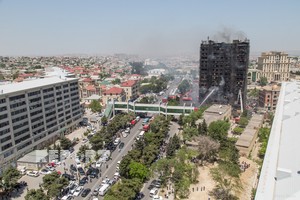
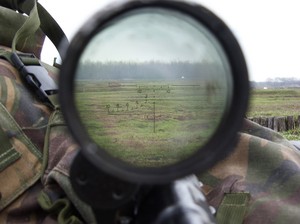

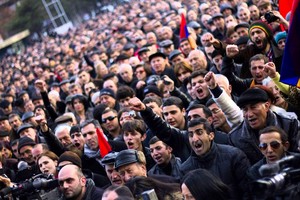
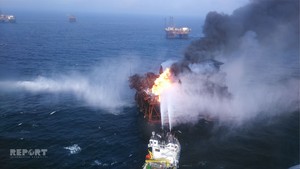


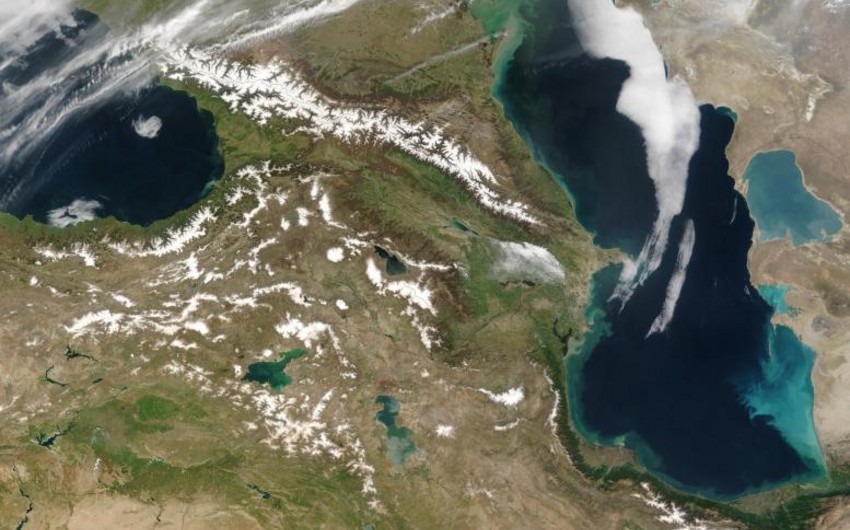 https://static.report.az/photo/94469a0c-eb01-4c27-9cc4-a9371c2145a7.jpg
https://static.report.az/photo/94469a0c-eb01-4c27-9cc4-a9371c2145a7.jpg

